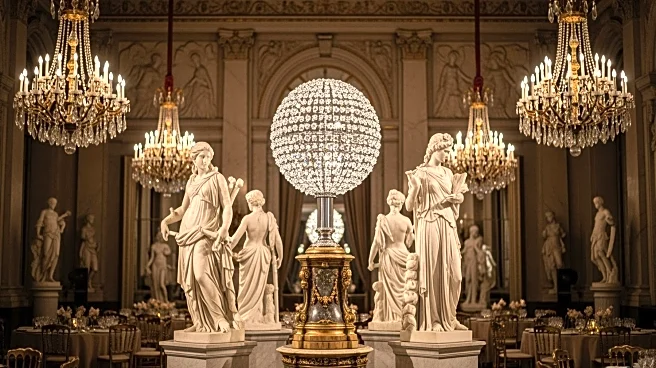What's Happening?
The British Museum has come under fire from the Greek government for hosting a high-profile fundraising event, the Pink Ball, in the gallery housing the Parthenon Marbles. The event, which took place on October
18, 2025, was attended by 800 guests, including notable figures such as Mick Jagger and Naomi Campbell. The gala, organized by museum director Nicholas Cullinan and arts patron Isha Ambani, aimed to generate new revenue streams for the museum. However, Greek Minister of Culture Lina Mendoni criticized the museum for using the Parthenon Marbles as mere 'decorative elements,' calling the event 'offensive.' This incident follows a similar controversy in 2024 when a fashion show by Erdem was held in the same gallery, which also drew criticism from Greece.
Why It's Important?
The controversy highlights ongoing tensions between the British Museum and Greece over the Parthenon Marbles, which Greece has long sought to have returned. The event has also drawn criticism from climate activists, who protested the museum's ties with British Petroleum, a major sponsor. The backlash underscores the ethical and cultural challenges faced by museums in balancing financial needs with cultural sensitivity and environmental responsibility. The incident may impact the museum's reputation and its future collaborations, particularly with Greek authorities, as it seeks to navigate these complex issues.
What's Next?
The British Museum may face increased pressure to reconsider its sponsorship agreements and event policies, particularly those involving culturally sensitive artifacts. The Greek government is likely to continue its advocacy for the return of the Parthenon Marbles, potentially leveraging this incident to bolster its case. Additionally, climate activists may intensify their campaigns against the museum's association with fossil fuel companies, calling for more sustainable funding practices.
Beyond the Headlines
This controversy raises broader questions about the role of cultural institutions in addressing historical grievances and their responsibility towards ethical funding. The incident could prompt a reevaluation of how museums engage with corporate sponsors and manage their cultural assets, potentially influencing global museum practices.











